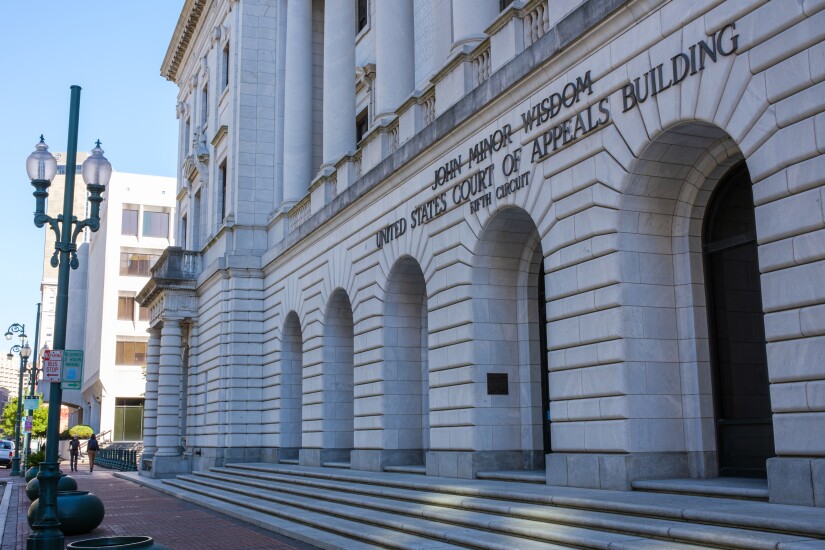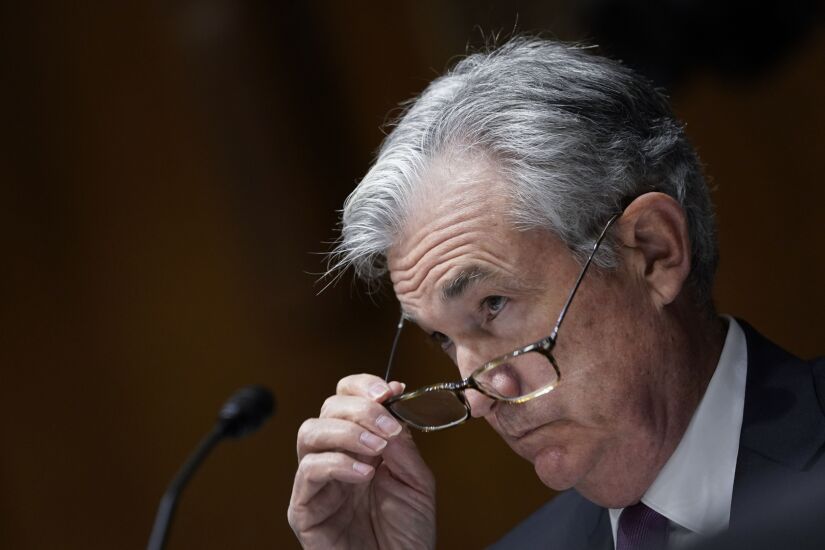In this month's roundup of American Banker's favorite stories: JPMorgan Chase moves third parties away from screen scraping, Wells Fargo launches its new virtual assistant, bank CEOs predict a full return to office within the next three years and more.

The Most Powerful Women in Banking 2022
Other returnees to the list this year include Jill Castilla, president, CEO and vice chair of Citizens Edmond Bank, and Nandita Bakhshi, president and CEO of Bank of the West. Dorothy Savarese, another returning honoree, stepped down as president and CEO of Cape Cod Five Cents Savings Bank this year and became its executive chair.

JPMorgan Chase says it has fully eliminated screen scraping
The New York bank made this announcement on Oct. 6.
"It's a big win for our customers because they get greater control over their data and more visibility around which applications will use the data and which accounts they will be sharing with those applications," Paul LaRusso, head of data aggregation at Chase, said in an interview.

How Wells Fargo is Google-izing customer interactions
Critics thought the demo was creepy because of how real it seemed — the salon and restaurant reservation takers thought they were talking to human beings, who used filler sounds like "um" to sound more natural.
Wells Fargo is now harnessing this technology — not the creepy part but the ability to understand human interactions — to power its virtual assistant, Fargo. On Oct. 24, the bank announced that it is partnering with Google to give consumers the familiar Google Assistant experience in Fargo through Google Cloud's Dialogflow. The bank has been beta-testing Fargo with about 100 employees and hopes to roll it out to customers in the second quarter of 2023.

Bankers betting interest rates will peak in first half of 2023
Almost two-thirds of banking executives think the federal funds rate will peak in the first half of 2023, according to an IntraFi Network survey of more than 450 bank executives released Oct. 18. Close to 60% of banking leaders expressed concern that the Federal Reserve will raise rates too quickly in its bid to tame inflation.

7 banks and other firms changing payroll to battle inflation
"By providing their employees access to the money they have already earned, employees have more short-term liquidity to avoid overdrafts, late fees, and expensive payday loans," said Ram Palaniappan, CEO of Earnin, a firm that offers an earned wage access (EWA) service, which allows employers to offer a portion of employees' earnings before a regularly scheduled payday.

Wells Fargo's latest financial blow shows its regulatory woes are hard to forecast
The San Francisco-based megabank grew its loans, collected more interest and made progress in cutting expenses, even as its loan book remained healthy.
But the regulatory woes that have long plagued the company once again clouded its earnings. Wells recorded $2.2 billion in operating losses — the line item where it counts expenses from lawsuits, regulatory penalties and customer restitution. And CEO Charlie Scharf said it's "highly likely" that the bank may record more expenses in future quarters that "could be significant."

All of CFPB's past actions threatened by appeals court decision
On Oct. 19, a panel of three judges on the U.S. Court of Appeals for the 5th Circuit
The panel's decision is not binding, and the CFPB has roughly two weeks to seek a review of the case by the full appeals court. If that appeal is accepted, the three-judge panel's decision would be automatically vacated until the entire court hears the case, Community Financial Services Association of America v. CFPB. Alternatively, the CFPB could ask the Supreme Court for a review, lawyers said.

Bank CEOs expect returning to the office will become the norm
Almost 70% of U.S. bank CEOs surveyed by KPMG said they envision fully in-office working environments within the next three years. That is close to double the average of other white-collar industries. Just 6% of bank executives predicted remote-only work environments.
The predictions highlight the degree to which bank leaders see their work as a relationship business and provide a glimpse of how executives think the industry's workforce will operate in the coming years.

PayPal made a big upgrade to its U.S. tech. Did anybody notice?
But that's not what's making headlines.
The San Jose payments company is facing severe backlash on social media — some of which came from its past executives — after updating its Acceptable Use Policy to threaten fines of up to $2,500 for merchants or consumers who use the payment company's services to spread misinformation, effective November 3. The update was pulled this weekend.

The hidden dangers in the Fed's balance-sheet reduction
As the central bank ramps up its effort to
The Fed has been steadfast in its commitment to tightening monetary policy until inflation abates, but it remains unclear if it can avoid a repeat of the September 2019 tightening cycle, when a scarcity of reserves forced the Fed to expand its balance sheet again. The threat is punctuated by last month's U.K. government debt crisis that forced the Bank of England to intervene in the bond market to avoid a financial catastrophe.





